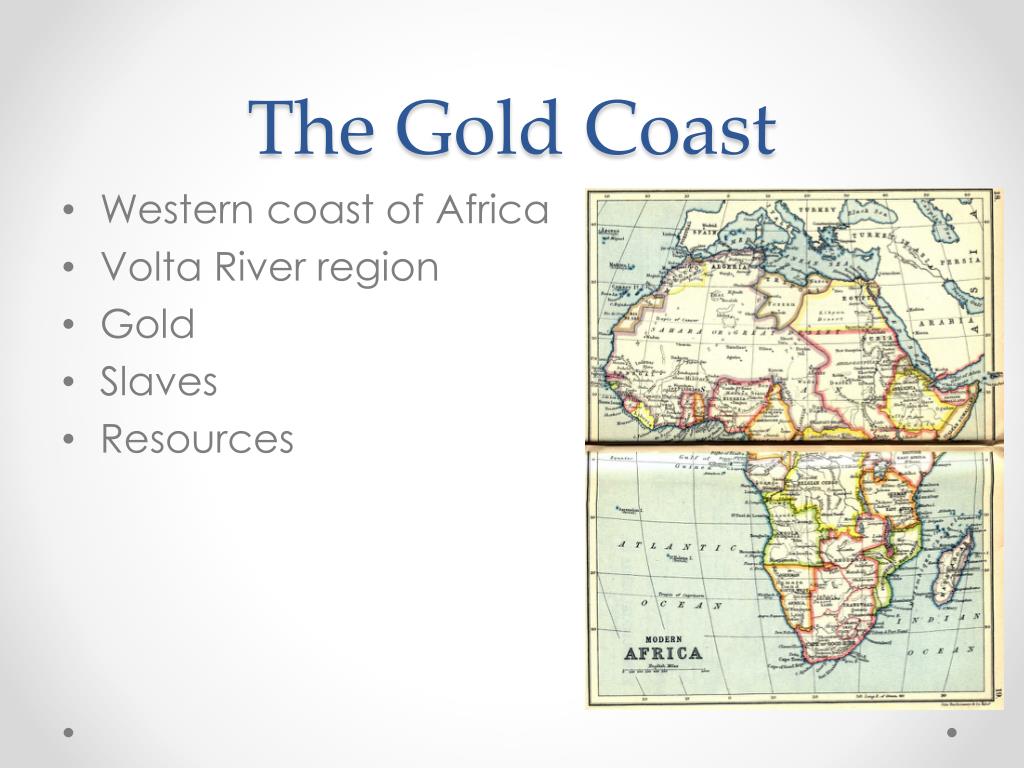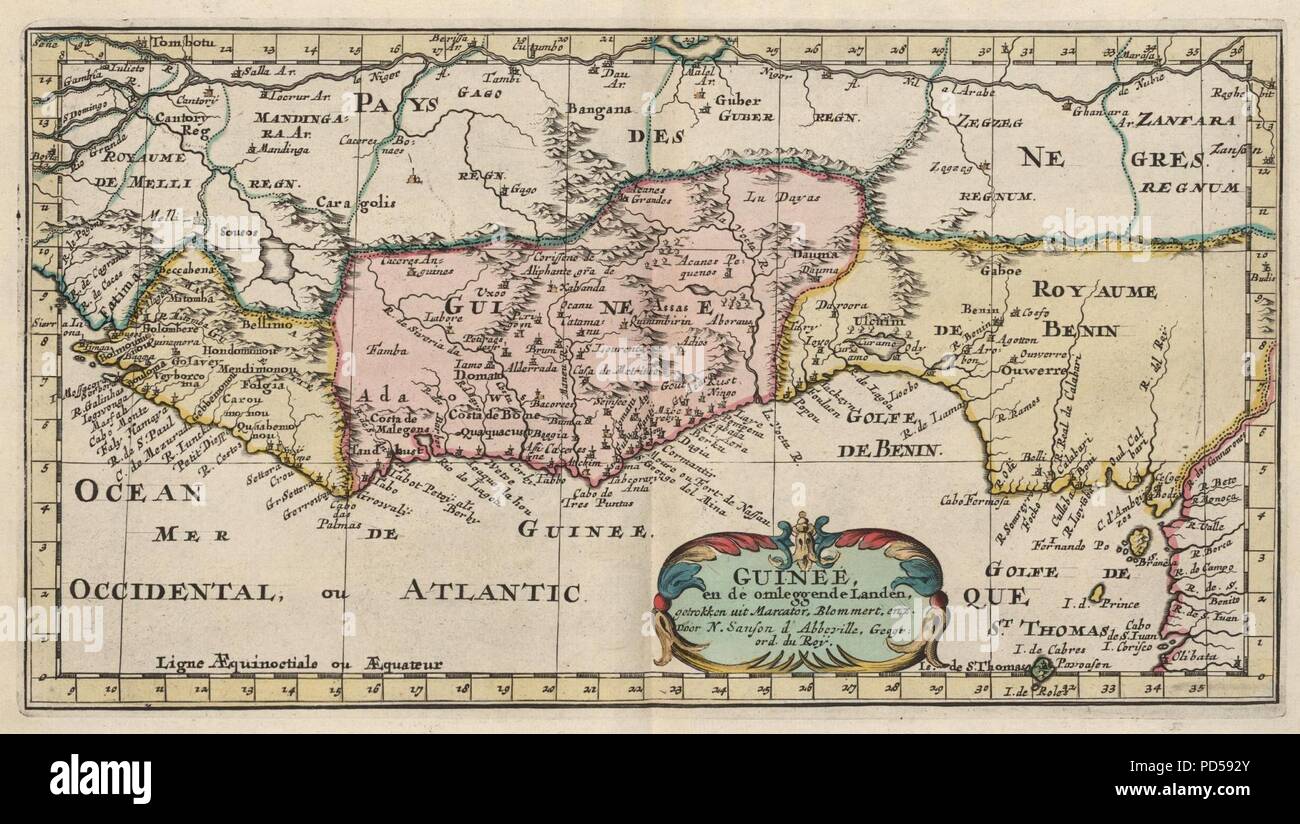Was there a Golden Age on the Gold Coast? The region, now known as Ghana, was once a crucible of global trade, a battleground for European powers, and a source of immense wealth, all fueled by the allure of gold and, tragically, the horrors of the slave trade.
The "Gold Coast," a name echoing with the promise of riches, once referred to a specific stretch of the Gulf of Guinea in West Africa. Today, that area is encompassed within the borders of Ghana, a nation that carries the legacy of a complex and often brutal past. The story of the Gold Coast is one of ambition, exploitation, and the enduring spirit of the people who called it home. It is a narrative woven with threads of conquest, commerce, and the enduring quest for self-determination.
| Aspect | Details |
|---|---|
| Geographic Location | The Gold Coast encompassed a section of the Gulf of Guinea coast in West Africa. This area is now primarily within the modern-day nation of Ghana. |
| Extent | It stretched roughly from Axim, Ghana (or Cape Three Points), in the west to the Volta River in the east. |
| Name Origin | The name "Gold Coast" arose because the region was a significant source of gold, drawing European traders and adventurers. |
| Early European Presence | The arrival of European sea traders in the 15th century, beginning with the Portuguese, marked a turning point. |
| Portuguese Influence | The Portuguese established a presence, seeking to control oceanic trade and exploiting the region's resources. They held a monopoly initially. |
| Rise of Competition | Other European powers, notably the Dutch, challenged the Portuguese monopoly, leading to a scramble for control. |
| Dutch Involvement | The Dutch Gold Coast (Dutch Guinea) began in 1612, gradually expanding its colonial presence. They established trading posts and forts. |
| Other European Powers | The British, Danish, and Swedish also established colonies and trading posts. |
| British Colonial Rule | The British formally constituted the Gold Coast Colony in 1874. The British Crown Colony existed from 1821. |
| Gold Coast Regiment | During World War II, the Gold Coast Regiment contributed significantly to the British war effort, sending 65,000 troops. |
| Independence and Ghana | The Gold Coast became independent in 1957, adopting the name Ghana, marking the first British colony in Africa to achieve independence. Kwame Nkrumah was the first president. |
| Post-Independence | Ghana is located in West Africa, specifically along the Gulf of Guinea. It transitioned to a republic. |
| Legacy | The Gold Coast's history reflects a complex interplay of trade, colonialism, and the fight for independence, with lasting impacts on the region. |
| Resources | Beyond gold, the region also possessed other valuable resources, including petroleum, sweet crude oil, and natural gas. |
| Key Trading Post | The Gold Coast served as a crucial trading post for gold, attracting European powers. |
| British Togoland | The British united the Gold Coast and British Togoland in 1956. |
| Newspapers | Numerous newspapers, such as Gold Coast News and Gold Coast Independent, provided local and international news. |
For more information on the history of Ghana and the Gold Coast, you can consult reputable sources such as the Ghana Museums and Monuments Board or historical archives.
- Nikola Mekti Wimbledon Champion Croatian Tennis Star
- American Flag Etiquette Display Guide Tips Facts
The arrival of the Portuguese in the 15th century marked a pivotal moment. These pioneers, armed with navigational expertise and a thirst for trade, saw the potential of the Guinea coastlands. They weren't alone for long. The allure of gold, coupled with the desire to control valuable trade routes, drew other European powers like the Dutch, the Danes, and the Swedes, each vying for a share of the riches. The competition was fierce, and the landscape of the coast gradually transformed with the construction of forts and trading posts, each a symbol of the ambition and rivalry of the competing empires.
The Dutch, seeking to break the Portuguese monopoly, were among the first to effectively challenge their dominance. The Dutch Gold Coast, or Dutch Guinea, gradually took shape, its presence marked by a network of trading posts and settlements. The Swedes also established their presence for a time. Each power had its own ambitions, its own strategies for securing resources and control.
This era was not solely defined by the pursuit of gold. The slave trade cast a long and dark shadow over the Gold Coast. European traders, driven by the demand for labor in the Americas, participated in the brutal practice of enslavement. The coastal peoples, initially welcoming the merchants from various European nations to reduce their dependence on the Portuguese, found themselves increasingly entangled in this devastating trade. Forts, initially built for trade in goods, were later used as holding pens for human cargo, a grim testament to the era's inhumanity.
- Alvin Langdon Coburn A Pioneer Of Modern Photography
- Aleppo Kitchen Burbank Authentic Syrian Food At 2128 N Glenoaks
The British, by the 19th century, consolidated their control, eventually establishing the Gold Coast Colony in 1874. This marked a new chapter in the region's history, one of formal colonial rule. The British oversaw the administration, exploiting resources and shaping the political landscape.
Despite the devastating impact of slavery and the exploitative nature of colonialism, the Gold Coast was also a place of resilience and resistance. The coastal peoples, despite facing immense challenges, maintained their traditions and identities. Local governance structures persisted, even as they adapted to the changing circumstances. The seeds of independence were sown, fueled by the desire for self-determination and the recognition of the inherent dignity of all people.
The Gold Coast Regiment, which sent tens of thousands of troops to fight for Britain in World War Two, showed the commitment of the people. It was a colonial territory that sent soldiers to fight for Britain. The involvement in global conflicts underscored the complex relationship between the colony and its rulers.
The path to independence was long and arduous. In 1956, the British united the Gold Coast and British Togoland, a crucial step toward self-governance. The following year, the Gold Coast gained its independence, becoming Ghana. This marked a watershed moment, as Ghana became the first British colony in Africa to achieve this status. Kwame Nkrumah, the first president of Ghana, led the nation into a new era.
The transition to independence was not without its challenges. Ghana faced the task of building a new nation, overcoming the legacies of colonialism, and navigating the complexities of the post-colonial world. But the people of Ghana persevered, carrying the torch of freedom and striving to build a better future. It's a story of transition and transformation, a testament to the enduring strength of the human spirit.
The name "Gold Coast" refers not just to a geographical location, but also a period in history. It also encompasses a diverse array of stories: the rise and fall of empires, the brutal realities of the slave trade, and the indomitable spirit of the people who fought for their freedom. The Gold Coast, now Ghana, stands as a reminder of the complex forces that have shaped our world. It is a destination for those seeking to understand the intricacies of global history and the ongoing pursuit of justice and equality.



Detail Author:
- Name : Jude Zulauf
- Username : mhermiston
- Email : frida46@gmail.com
- Birthdate : 1982-10-15
- Address : 449 Heathcote Plaza Leaport, SC 08107
- Phone : 1-336-695-5520
- Company : McKenzie-Schaefer
- Job : Event Planner
- Bio : Exercitationem porro consectetur voluptates corrupti. Esse pariatur iure sequi numquam in. Necessitatibus placeat asperiores est dolor tempora. Ut ut non voluptas aut libero magni.
Socials
tiktok:
- url : https://tiktok.com/@blickc
- username : blickc
- bio : Vel velit aliquid expedita officiis sed.
- followers : 6858
- following : 883
facebook:
- url : https://facebook.com/carolyn3227
- username : carolyn3227
- bio : Temporibus velit distinctio voluptas sed qui.
- followers : 995
- following : 1318
linkedin:
- url : https://linkedin.com/in/blick1989
- username : blick1989
- bio : Velit perspiciatis quod minima dicta.
- followers : 4213
- following : 1560
twitter:
- url : https://twitter.com/carolyn.blick
- username : carolyn.blick
- bio : Nihil nisi a laborum facilis ullam. Voluptas qui recusandae ut sit eos temporibus. Officia incidunt eveniet itaque in autem. Tempora et reprehenderit minus.
- followers : 1348
- following : 390